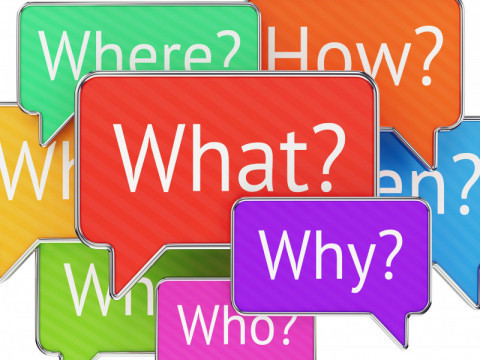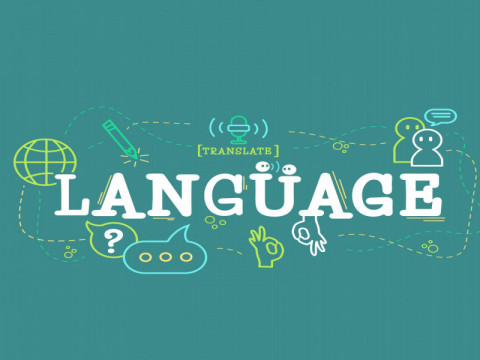Parts of speech
Learning parts of speech helps you to form better sentences and improves overall language learning. Read the article and try to make changes in your written and spoken language.

Words that are spoken fall into different categories called as the parts of speech. Furthermore, these words are categorized into smaller categories like adverbs of place, time or personal pronouns etc. However, there are 8 basic parts of speech that everyone learns in English language. They are, nouns, pronouns, verbs, adjectives, adverbs, prepositions, conjunctions and interjections.
NOUN
A noun is the name of a person, place, thing or an idea. Nouns are often used with an article (a, an, the) but not always. Proper nouns always start with a capital letter and common nouns do not. Proper nouns are specific names of a person, place or thing whereas common nouns are generic. Nouns perform different functions in a sentence, for example, a noun can be a subject, direct or indirect object, subject complement or object of a preposition.
A subject: A person or a thing.
Direct object: A noun that directly receives the action of the verb. For example: Our cat caught (verb) a mouse (direct object).
Indirect object: A phrase that occurs in addition to a direct object after some verbs and indicates the person or thing that receives what is being given or done.
Subject complement: It is a predicative expression that follows a linking verb.
Object of a preposition: It is a noun, noun phrase, clause or pronoun that follows a preposition and gives it a meaning.
PRONOUN
A pronoun is a word used in the place of a noun. It is usually substituted in the place of a noun. Pronouns are further divided into personal pronouns, possessive pronouns, reflexive pronouns, relative pronouns and demonstrative pronouns.
Personal pronoun: refers to a specific person or a thing.
Possessive pronoun: refers or indicates ownership.
Reflexive pronoun: used to emphasize another noun or a pronoun.
Relative pronoun: used to introduce a subordinate clause.
Demonstrative pronoun: identify, point to or refer to nouns.
Examples of pronouns are I, me, he, she, herself, you, it, that, they etc.
VERB
The verb in a sentence expresses action or being. There is usually a main verb and two or three helping verbs in a sentence. Verbs also take different forms to express tense.
Examples of verbs are feel, look, smell, taste, bring, keep etc.
Helping verbs: A helping verb always stands in front of the main verb in a sentence. Examples of helping verbs are as, is, am, are, was, were, should etc.
ADJECTIVE
An adjective modifies or describes a noun or a pronoun. it usually answers questions like which one or how many. Articles, that is a, an, the, are usually categorized as adjectives.
ADVERB
An adverb modifies the verb, an adjective or another adverb in a sentence. It answers to questions like where, why, how, what degree and what condition. They usually end with -ly after the word.
PREPOSITION
A preposition is a word placed before a noun or a pronoun to form a phrase. It is always a part of a prepositional phrase.
Preposition phrase: A prepositional phrase is a group of words consisting of a preposition, an object and any words that modify the objects.
Examples of prepositions are: on, in, under, over etc
(To know more, read the blog on Prepositions.)
CONJUNCTION
A conjunction joins words, phrases, clauses etc and indicates the relationship these elements. The coordinating conjunctions connect grammatically equal elements or words, phrases or clauses of equal importance. The main coordination conjunctions are and, or and but.
INTERJECTION
Interjections are words that are used to express feelings or emotions. It is usually followed by an exclamatory mark.
Examples of interjections are: oh man!, oops!, What! etc.
Explore
Related Articles

Active Voice and Passive Voice
This article will help you understand the difference between active and passive voice and make your written and spoken skills of language better.
Continue reading
Adverbs
One of the most easiest topics of English grammar is Adverbs. They are easy to understand and easy to use in sentences while writing and speaking. If…
Continue reading
Basic rules of grammar
There are many rules to follow in grammar. Read these basic rules to understand the basics of it and slowly develop and improve the language.
Continue readingMore Articles

Developed nations and languages
There is a strong narrative on English among India's financially and educationally elite classes. The narrative is that English is the only way to…
Continue reading
Important words and phrases in Marathi (For beginners)
Learning a new language can be difficult. But with constant practice and learning it can be easy. Starting to talk in the language you are trying to…
Continue reading
Tips to improve your spellings
Writing in English is as important as speaking. To learn to write correctly might seem like a difficult task. There are always some tips that you need…
Continue reading
Active Voice and Passive Voice
This article will help you understand the difference between active and passive voice and make your written and spoken skills of language better.
Continue reading
Difference between Voice and Speech in Grammar
English learners may get confused between the use of these two topics and end up making mistakes. Read this short article to help yourself and improve…
Continue reading
Direct and Indirect speech
Knowing how to use direct and indirect speech in English is considered important in spoken English. Read the article below and understand how to use…
Continue reading
Types of nouns
Nouns are the largest group of words in any language. Understanding them and using them correctly while learning the language is considered very…
Continue reading
Ways to improve your spoken English skills
Improving spoken languages might seem as a challenge. But, with proper guidance and tips, it is not too difficult.
Continue reading